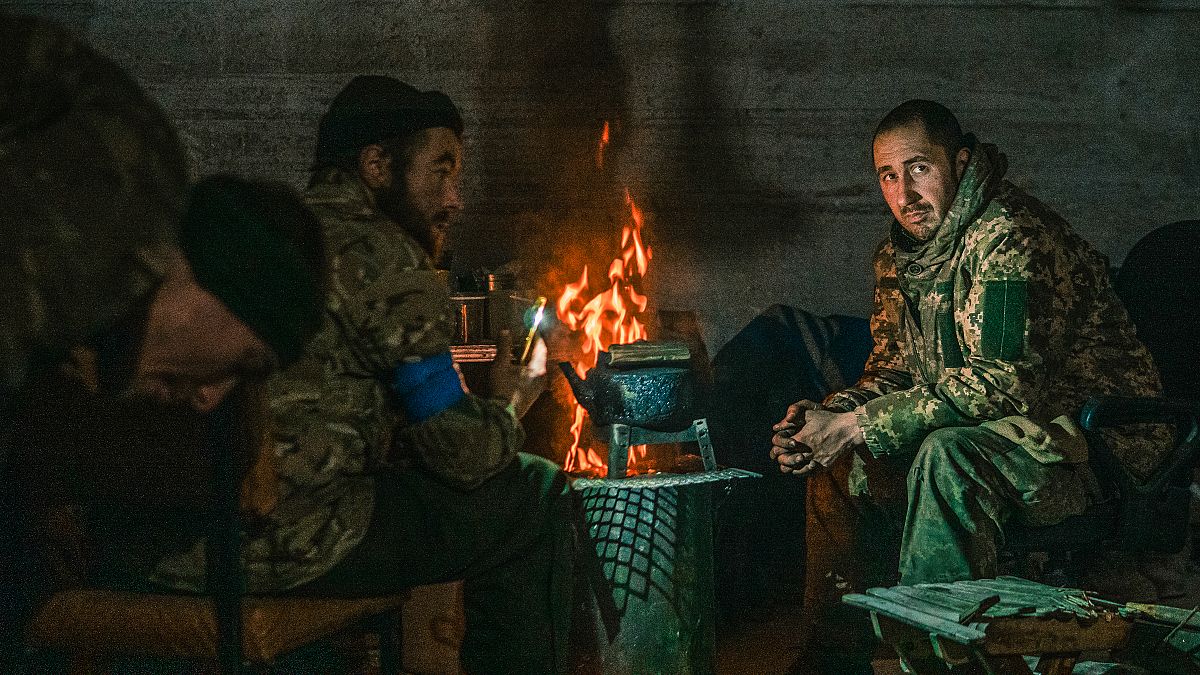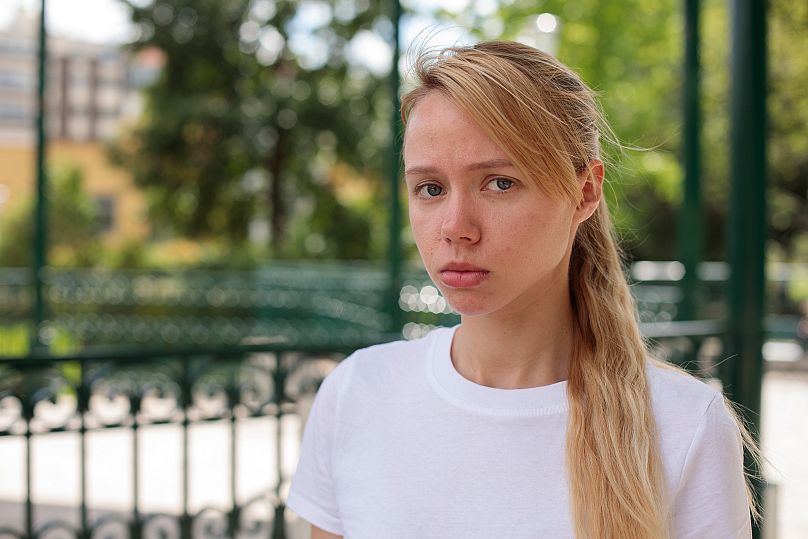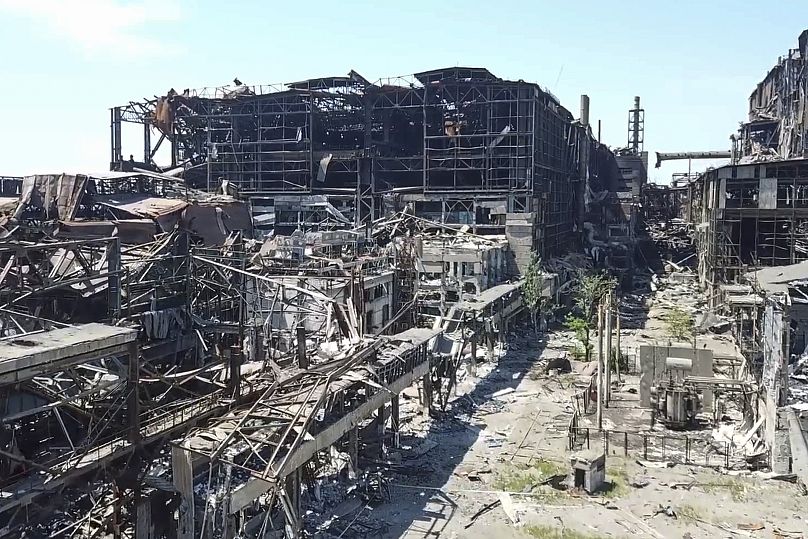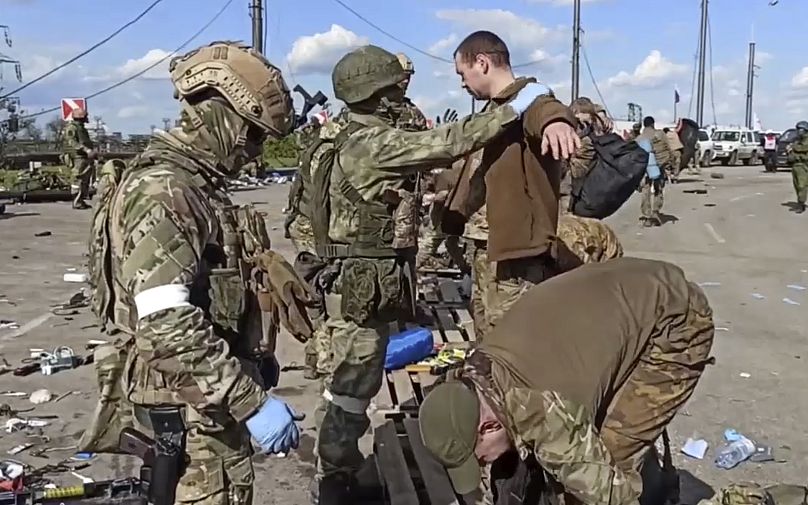With no news from the Azov fighters, their families are campaigning to bring the fate of the combatants into the spotlight.
A month ago, the Ukrainian Azov regiment entrenched in the Azovstal steel plant in Mariupol was ordered by Kyiv to surrender to Russian forces.
The Ukrainian authorities said this was the only way to save the lives of Mariupol defenders who spent months besieged in the plant under constant shelling, with no access to basic supplies. The captured combatants had to return home via prisoner exchange, but so far none of them have been released and very little is known about their situation.
Hanna Naumenko, 25, says she hasn't heard the voice of her partner since the day he left the steel plant back in May.
The head of the Azov regiment, Denys Prokopenko, has called his wife Kateryna once, for about 30 seconds, at the beginning of his captivity. The connection was very bad, the couple could barely hear each other, yet Kateryna describes the call as a happy memory.
She learned back then that her husband and his fellow combatants were kept in satisfactory conditions, but it was impossible to know whether Prokopenko could express himself freely on the phone.
Right now, Azov families say that from the limited information they receive from the negotiators they know for a fact that the Ukrainian prisoners — protected under international humanitarian law — are kept in bad conditions, which do not correspond to those required by the Geneva Convention on the treatment of prisoners of war and detainees.
"What we know is that the isolator where PoWs are kept is overfilled, food and water need improvement," Kateryna Prokopenko said in a statement.
"The stories of the war prisoners released earlier show that they endured physical and mental torture," The Armed Forces of Ukraine added in a press release.
Around 2,500 Ukrainian soldiers and commanders were taken from Azovstal into captivity, more than 900 of them from the Azov regiment.
They were transferred to the self-proclaimed Donetsk People's Republic, whose leader, Denis Pushilin, recently stated that "there are enough materials to hold a tribunal over the Ukrainian military," and promised an open trial.
Such trials, including those where the prosecution asks for the highest penalty, have happened in the DPR: recently, three foreign soldiers with the Ukrainian armed forces were sentenced to death.
The Russian Investigative Committee has said it will question the combatants, and rumours have circulated that some of them were being transferred to Russia. The Ukrainian side could not confirm whether or not all the Ukrainians remained in the Donetsk region, in territories not under the control of the Ukrainian government.
Speaking on national television, the Secretary of the National Security and Defence Council, Oleksiy Danilov, said a week ago that not only Ukraine but also international institutions were involved in the exchange process. He called it "a very delicate matter" that "should not be disrupted".
The Ukrainian side says that the negotiation process is highly classified, while the families of captured soldiers are worried that their loved ones will be forgotten.
They have asked foreign journalists to visit the place where the prisoners are being kept, and for the International Committee of the Red Cross (ICRC) — which has a mandate to visit Ukrainian captured servicemen — to check the conditions of their detention.
In May, the ICRC registered the combatants leaving the Azovstal plant, in order to better track those who had been captured. That was also done to help the prisoners keep in touch with their families, the ICRC team said at the time.
Family members have been able to check via a procedure whether someone has left the plant to be taken into captivity alive, but not much more.
Hanna Naumenko, in a recent conversation with Euronews, explained that there was quite a lot of pressure put on the ICRC by the families of the captives, and by society. The call centre of the organisation has been inundated. An online form for requests from the families was also created, and those looking to find out information about their loved ones have been encouraged to use it.
Those formal requests from the families are very important, she said, as it allows the ICRC to ask for permission to check on a specific prisoner.
"We are rather reassured that the organisation is working and that one day soon our loved ones will be free," Naumenko said. "Remember how it was for Taira [the Ukrainian paramedic taken captive in March and recently released]? There was no information at all regarding her situation in captivity and then suddenly she was free. We so much hope for a similar outcome," she added. "Keeping this situation in the spotlight is crucial."




